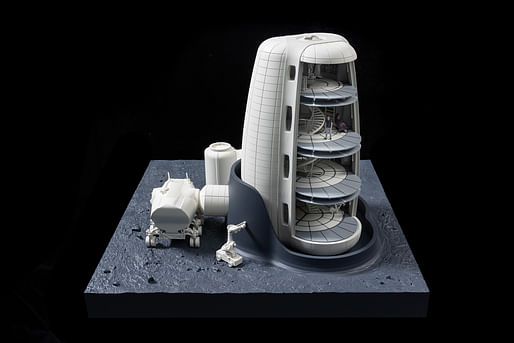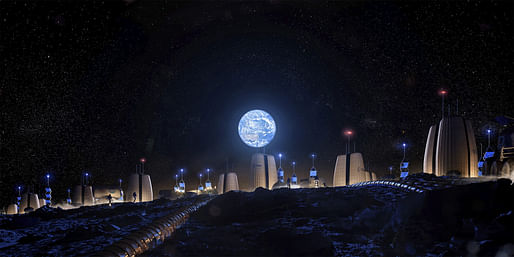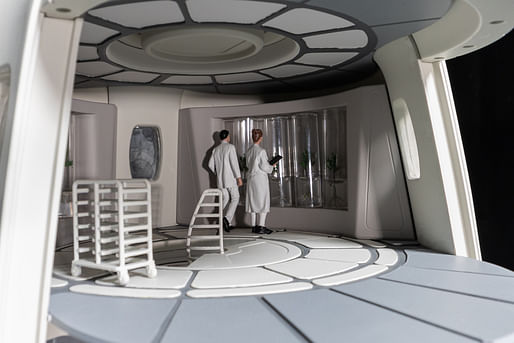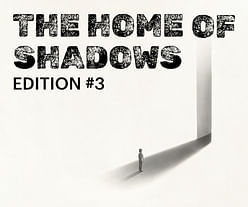

The four-year-old Moon Village concept developed by Skidmore, Owings & Merrill (SOM) in collaboration with the European Space Agency is again on display as part of the new Space Mission exhibition that recently opened at the Cité des Sciences et de l'Industrie museum in Paris.
The concept offers a preliminary disciplinary model for a possible human settlement in outer space with a single habitat module placed on the outer rim of the Shackleton Crater on the lunar South Pole. It was developed by SOM and the ESA in unison with engineers from the Massachusetts Institute of Technology (MIT) using existing research into human psychology, architecture, and astrophysics to create a long-term living space for astronauts.

The project was first proposed in 2015 by then-Director Dr. Johann-Dietrich Woerner as a means of bringing other EU member states into the space program, and could join NASA’s Mars mission to become one of the first permanent settlements in space as the different agencies plan for the International Space Station looks to go offline in 2030.
“Our idea is to transport inflatable modules to the base of a small crater on the South Polar Region of the Moon, and then gradually fill the cavity with lunar soil, until the modules are effectively buried,” the ESA’s Angelus Chrysovalantis Alfatzis explained at the time of the announcement. “Meters of shielding will protect those inside from radiation. Building inside a crater will also help insulate due to the stable temperature of the Moon’s underground environment and provides cover from the threat of micrometeoroids.”

The settlement also provides opportunities for scientific research into the early origins of the universe, which are left in traces in craters surrounding the proposed site. A scale model of the 3D printed living quarters that was first seen in the original 2019 announcement is included in the exhibition, which also features other architectural solutions, robotics, and transportation methods required for travel and colonization in four sections.
Curators say their presentation will transport visitors into the shoes of an astronaut in an experience that “feels like a waking dream.”

Kinderspace: Architecture for Children's Development #2
Register by Thu, Jan 16, 2025
Submit by Mon, Jun 16, 2025

The Home of Shadows / Edition #3
Register by Wed, Jan 29, 2025
Submit by Mon, Mar 3, 2025

The Last Nuclear Bomb Memorial / Edition #5
Register by Thu, Jan 16, 2025
Submit by Wed, Feb 19, 2025

Land Art Generator Initiative 2025 Fiji: Climate Resilience for Island Communities
Register/Submit by Mon, May 5, 2025
1 Comment
Why is there a spiral staircase in micro gravity?